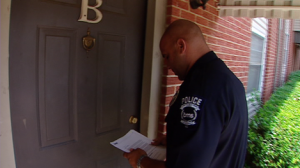Living with roommates can be great or very stressful. For most of us who’ve cohabitated, it’s usually somewhere in the middle. During the best of times, you are almost always guaranteed to have a friend around to kick back with. During not so great times, that pile of dirty dishes can begin to creep up higher and higher, and tensions run high when it comes time to discuss finances. Regardless, sharing a house or apartment with others means responsibility, accountability, and lots and lots of patience.
Many of us may not give too much consideration to the legal and contractual side of living with others, beyond signing the lease and paying your portion of rent and bills. However there is a Fourth Amendment question to consider regarding roommates consenting on your behalf to a police search. This can lead to some very serious problems. The United States Supreme Court is currently reviewing a case out of the California Court of Appeals called Fernandez v. California, 12-7822 that deals with this issue. (You can read the lower court’s opinion that will be reviewed HERE).
Essentially, the Fourth Amendment and its related decisions say that if officers do not have a search warrant, they must obtain your consent before they can enter your home and conduct a search. The Supreme Court in this case is currently looking to answer the question of whether or not a defendant has to be present to give consent or objection to a search, whether a roommate can just give consent on their behalf, or whether officers just need consent from anyone living there to override any objections and conduct a search. An older Supreme Court case, Georgia v. Randolph 547 U.S. 103, 126 S. Ct. 1515, 164 L. Ed. 2d 208 (2006) held that if one physically present resident does not consent to a search, that refusal cannot be overridden by another resident giving consent.
 In the pending Fernandez case, the defendant refused to consent to a warrantless police search. In summary, he was arrested, removed from the property, and despite his refusal, consent to search was obtained from another resident in his absence. But does his ongoing refusal still apply?
In the pending Fernandez case, the defendant refused to consent to a warrantless police search. In summary, he was arrested, removed from the property, and despite his refusal, consent to search was obtained from another resident in his absence. But does his ongoing refusal still apply?
The National Association of Criminal Defense Lawyers (NACDL) has filed an Amicus Brief with the Supreme Court stating that the warrantless, un-consented search in the Fernandez case was unconstitutional and violative of the Fourth Amendment, and that the older precedent case of Georgia v. Randolph should apply.
Oral Arguments are set for November 13, 2013 before the Supreme Court. The ultimate question to be answered is whether under precedent/prior case law, “a defendant must be personally present and objecting when police officers ask a co-tenant for consent to conduct a warrantless search or whether a defendant’s previously stated objection, while physically present, to a warrantless search is a continuing assertion of Fourth Amendment rights which cannot be overridden by a co-tenant.” The outcome of this case could either reinforce the Fourth Amendment to the Constitution (an important civil liberty), or weaken its protections.
Stay tuned.




